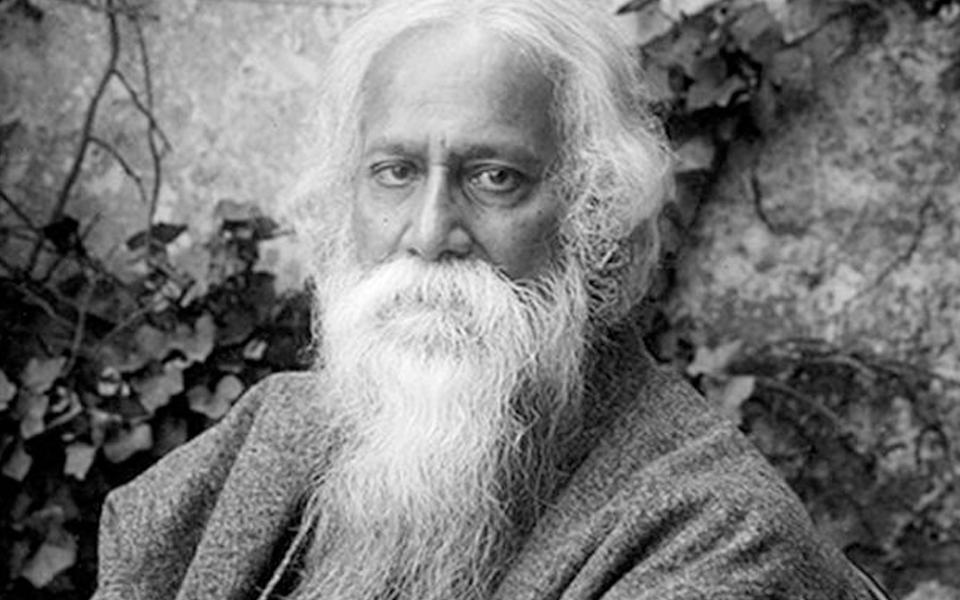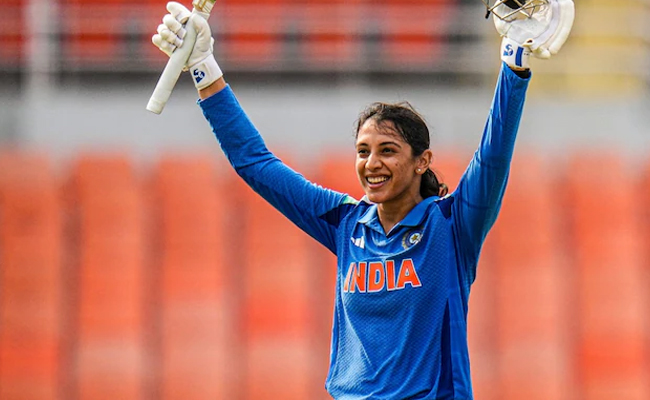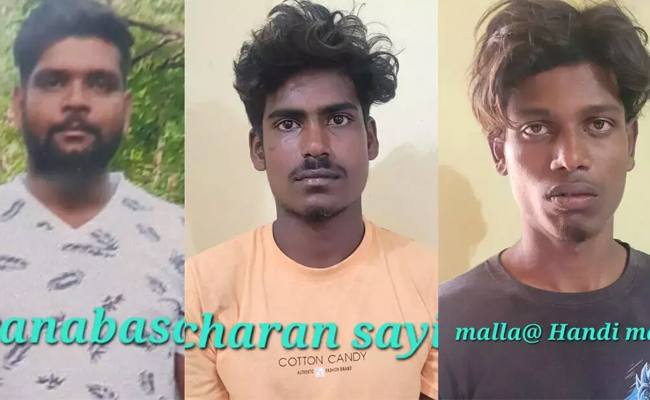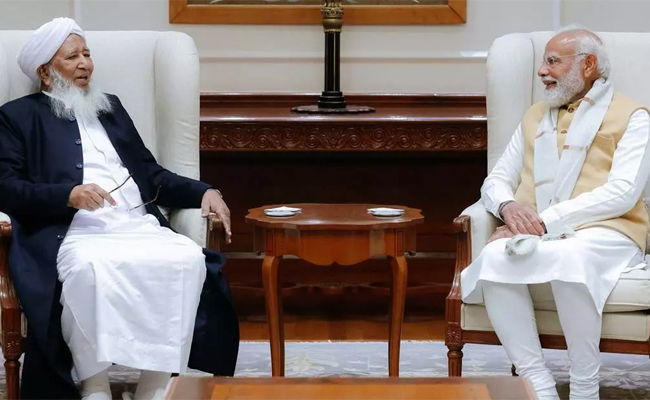New Delhi, Aug 6: A progressive writer, visionary, a social thinker, a philosopher, an educationist - Rabindranath Tagore was a polymath. And it is this vastness that fascinated author Radha Chakravarty to take translate Tagore's writings from Bengali to English.
As of today, Chakravarty is credited with translating eight works of the Nobel Laureate including "Essential Tagore" (with two others), "Gora", "Boyhood Days", "Chokher Bali", "Farewell Song: Shesher Kabita", "The Land of Cards: Stories, Poems and Plays for Children" and others.
Chakravarty had no formal training in Bengali. Her father had a transferable job which took her to different parts of India apart from West Bengal.
"But Tagore always remained as an influence at our home, no matter where we were. It was my grandfather who used to read out stories of his, that is how I started knowing about him," Chakravarty, a Professor of Comparative Literature and Translation Studies in Delhi's Ambedkar University, told IANS.
Chakravarty, the wife of former Indian High Commissioner to Bangladesh Pinak Ranjan Chakravarty, recollected her first encounter with Tagore's writing was "Sahaj Path". However, it was "Kabuliwalah" that drew her closer to the writer.
"I couldn't realise how and when Tagore became a part of my life. I started reading more and more of his writings. What captivated me more was his choice of simple language and clarity in thought and approach," she said.
But what really made Tagore a part of her life was the emancipation of women in the 19th century that reflected in his writing, which was not so prominent in the works of other writers, Chakravarty explained.
"His characters - be it Binodini of "Chokher Baali" or Labanya of "Sesher Kobita", all had a distinct identity who tried to break societal norms and stood up for their freedom of expression, they had a question in their mind, they were rebels in their own way," she noted
However, it was not Tagore that Chakravarty translated first.
"While teaching English literature in Delhi University I was simultaneously doing research work on many other Indian literary figures. I was approached by an upcoming publishing house to do a translation. And the first book happened which was a compilation of the works of 20 contemporary authors," she said.
"Chokher Bali" was her first translation of a Tagore work and what appealed her to take it up was the enigmatic personality of female protagonist, Binodini.
"The character has multiple layers in her. The book was far ahead of time. The characters challenged the convention and family bounds. This further inspired me to take up his works and translate," she stated.
Talking about translation, Chakravarty said that it acts as a major medium in strengthening cross-cultural bonds, adding that the scenario in the literary space has changed quite a lot compared to what it was few years ago.
"Now the publishers are welcoming it, which earlier was not there. The publishing houses would never show much eagerness in printing a translated work; it would take quite some effort to convince them, but now it is changing," she added.
While translations on the one hand take regional literature to the world, Chakravarty highlighted on the several factors that need to be considered before taking up a literary work, particularly maintaining the ethos and values of the original writing.
"The time period of a book matters lot. The book talks about a scenario which existed in 19th or 20th century but the translated work will be read by 21st century readers. Therefore, the language has to be simple which can connect to the contemporary readers," she explained.
Chakravarty pointed out that a linguistic barrier will always exist when it comes to translating from one language to English or from any other vernacular language, adding that translation is interpretation rather than mechanical transformation.
"Translating certain terms are often difficult like some expressions or words associated with culture or traditions which don't have any alternative. There is a dilemma on how to put that in English. This is often pretty time-consuming," she commented.
Although the non-translated words are always defined in summary, Chakravarty added that the certain original words bring in a different flavour to the translation.
"If something is left unexplained it adds mystery and generates curiosity among the readers to know what that particular word would mean. It pushes your imagination and in the process one gets a chance to learn a new word as well," she said.
Let the Truth be known. If you read VB and like VB, please be a VB Supporter and Help us deliver the Truth to one and all.
New Delhi (PTI): Star batter Smriti Mandhana, who played a pivotal role in India's historic 2025 Women's World Cup triumph, was named the BBC Indian Sportswoman of the Year for 2025 at a glittering function here on Monday.
Chess prodigy Divya Deshmukh won the Emerging Player of the Year award, for her historic FIDE Women's World Cup triumph at just 20.
Preethi Pal was named the Para-Sportswoman of the Year, for winning two bronze medals at the 2024 Paris Paralympics in track and field, while Anjali Bhagwat was honoured with the Lifetime Achievement Award, recognising her pioneering career as India's first woman shooter to reach an Olympic final and her trailblazing success on the world stage.
Mandhana, who is currently touring Australia with the Indian team for multi-format bilateral assignments, said in a video message: "Thank you BBC for giving me the awardfor Best Sportswoman of the Year. 2025 was a special year for women's cricket, especiallytowards the end we had a World Cup and I'm happy I could contribute and help India win matches.".
At 29, the left-handed batter is already among the game's greats, with the second-highest number of centuries in women's One Day Internationals and ranking third in total runsscored among current players worldwide.
Hailing from Sangli city in Maharashtra, the affable Mandhana was inspired by her father and brother, both of whom played cricket at the district level.
In September last year, she made a 50-ball hundred against Australia – the fastest 50 over international ton (men and women) by an Indian in the format, breaking Virat Kohli's record.
The award winners were decided by a distinguished grand jury comprising Leander Paes, Deepa Malik, and Anju Bobby George.
Praising the athletes' achievements CEO of BBC News, Jonathan Munro said: "Congratulations to this year's winners who showcase the very best in sporting excellence. The BBC World Service is committed to bringing such stories of human endeavour and outstanding success to audiences across India and around the world.".
Additionally, the ceremony also celebrated a wide spectrum of talent and impact, recognizing star performers and changemakers for redefining the landscape of Indian sport.
BBC Star Performers of the Year 202.
• Indian Women's Cricket Team: for their historic World Cup victory.
• Ekta Bhyan, Deepthi Jeevanji and Preethi Pal: for their trailblazing performances at the World Para Athletics Championship.
• Indian Women's Cricket Team for the Blind: for their inspiring World Cup victory.
• Indian Women's Kabaddi Team: for their smashing victory in World Cup.
.
BBC Changemakers of the Year 202.
• Indian Women's Ice Hockey Team: for breaking barriers in a non-traditional sport.
• Rajbir Kaur: Indian field hockey player and former captain of the women’s national team.
• Savita Punia: Indian field hockey player and current member of the national team.
• Paani Devi: recognised for her impactful contribution to grassroots sport.





